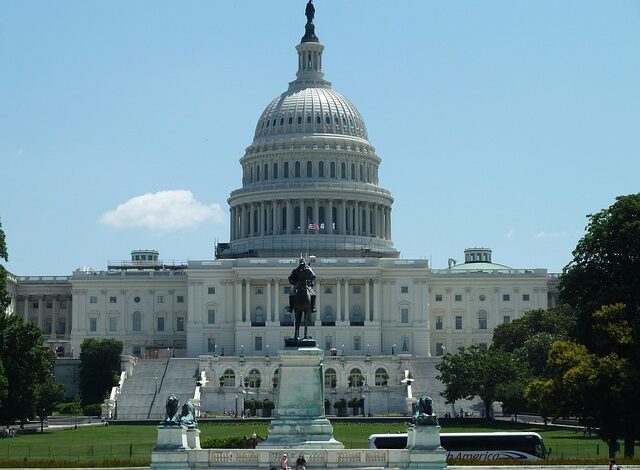Funding Battles in Congress How Political Gridlock is Impacting Legislation


As the latest budget negotiations in Congress come to a head, lawmakers on both sides of the aisle are engaged in heated debates over government funding. With critical deadlines looming, the fate of crucial legislative priorities hangs in the balance.

The Current Standoff
At the heart of the funding battles are competing visions for the future of key government programs. Democrats are pushing for increased funding for healthcare, education, and environmental protections, while Republicans are focused on military spending and border security.

As a result, negotiations have stalled, with neither side showing signs of backing down. The looming threat of a government shutdown adds pressure to the already tense situation, leaving lawmakers scrambling to find common ground before time runs out.

The Impact on Legislation
The gridlock in Congress not only threatens the functioning of basic government services but also hampers progress on crucial legislation. With funding battles taking center stage, other important issues are left unresolved, including immigration reform, infrastructure investment, and healthcare policy.

For example, efforts to pass comprehensive immigration reform have been derailed by the focus on budgetary concerns. The inability to reach a compromise on funding levels has put a damper on bipartisan efforts to address the ongoing crisis at the border and provide a pathway to citizenship for undocumented immigrants.

Similarly, infrastructure investment, a key priority for both parties, has fallen by the wayside as lawmakers continue to bicker over funding allocations. The failure to agree on a comprehensive infrastructure package not only stymies economic growth but also puts critical public works projects at risk.

The Way Forward
In the face of mounting challenges, lawmakers must set aside their differences and work together to find common ground. Bipartisan cooperation is essential to breaking the deadlock and moving legislation forward that benefits all Americans.

By prioritizing the needs of the American people over political posturing, lawmakers can overcome the funding battles that threaten to derail progress on key issues. Only through compromise and collaboration can Congress fulfill its duty to govern effectively and address the pressing issues facing the nation.

As the clock ticks down on the latest budget negotiations, the time for action is now. Lawmakers must rise to the occasion and put aside partisan bickering in favor of meaningful progress on legislation that will shape the future of the country for years to come.

